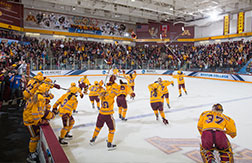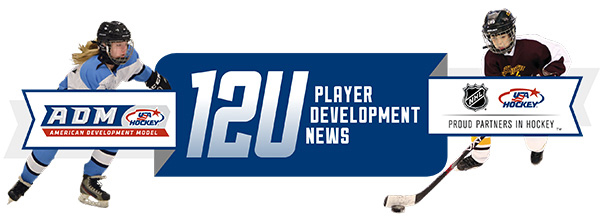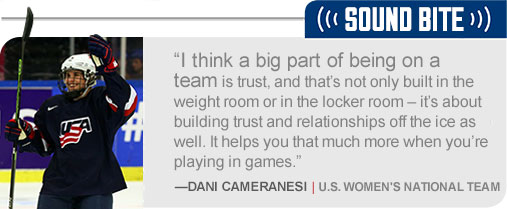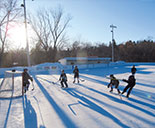| What is the importance of body contact and body-checking skill development in the overall safety of our players? |
|
|
|
|
Kelly Pannek and Dani Cameranesi know the importance of a team-first attitude. The duo, which hopes to compete with Team USA this winter in PyeongChang, South Korea, offered advice about being a good teammate that transcends hockey age classifications.
|
|

|
|
|
|
|
|
|
|
Q: I never learned to skate, but I like to coach youth sports. What can I do to help my child’s hockey team this season?
A: This is a great question. For some unfortunate reason, youth sport coaches often feel that they need to have hockey-playing experience to coach or help with a team. Though experience does help, some of the best coaches I have met (with no experience) are ones who have passion for the game, love working with young athletes, and are always willing to learn and grow as a coach. Read on for options that might be a good fit for you.
|
|
|
|

|
| |
| Learn to Train
|
| The objective of the Learn-to-Train stage is to refine overall sport skills and develop sports-specific skills. It is the most critical stage for the acquisition of hockey skills, but also a time during which kids should continue playing multiple sports.
|
|
|
|





